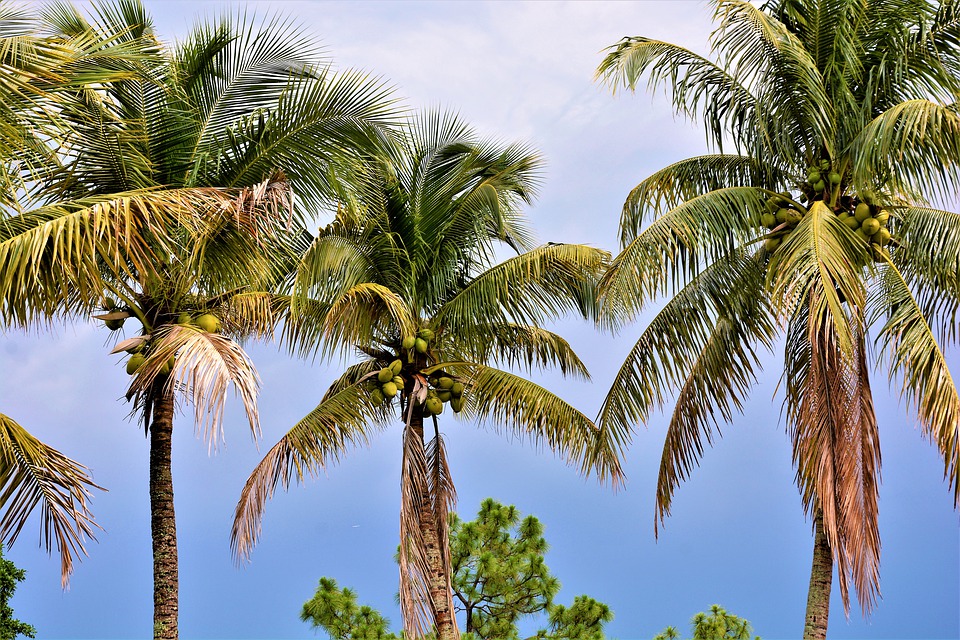ILO Unveils AI and Circular Economy Blueprint to Revive Philippines’ Coconut Sector
To scale this model, the ILO is calling on government agencies, private companies, investors, and development partners to collaborate.

The International Labour Organization (ILO) has presented a forward-looking vision to transform the Philippines’ struggling coconut industry into a driver of inclusive, sustainable growth, powered by artificial intelligence (AI) and circular economy principles. The announcement was made at the World Coconut Congress 2025 in Manila through the ILO’s Inclusive, Competitive, and Responsible Digital Philippines (Digital-PINAS) programme.
Coconut Communities at a Crossroads
Coconut farming remains the backbone of many rural economies in the Philippines, particularly on small islands such as Siargao, where the crop covers more than half of the land area. Yet, smallholder farmers remain trapped in poverty. Most of them continue to rely on copra production, with over 80 percent of valuable by-products wasted. Income from copra sales frequently falls below the poverty threshold, leaving families vulnerable to climate shocks and economic downturns.
Meanwhile, Siargao’s tourism sector is thriving, welcoming over 529,000 visitors in 2023, but coconut farming communities capture little of this economic boom. Weak linkages between agriculture and tourism have prevented local producers from benefiting from the island’s rising profile.
Unlocking Value Through a Circular Coconut Economy
The ILO’s vision highlights the vast potential of a whole nut approach, where every part of the coconut is turned into a value-added product. Coconut water, husks, shells, and sap can be processed into virgin coconut oil, soap, coir, vinegar, candies, eco-friendly handicrafts, and biochar, generating multiple income streams.
This circular model is designed to reduce waste, diversify livelihoods, and integrate coconut products into sustainable tourism value chains, enabling local communities to supply resorts, hotels, and eco-markets with innovative, eco-friendly goods.
AI and Digital Solutions for MSMEs
Under Digital-PINAS, the ILO is piloting AI-powered SCORE (Sustaining Competitive and Responsible Enterprises) training to professionalize operations among coconut micro, small, and medium-sized enterprises (MSMEs). The training equips businesses with:
-
Workplace productivity tools like 5S, occupational safety and health (OSH), and quality assurance.
-
AI-assisted resource planning to minimize waste and improve efficiency.
-
Digital marketing platforms and real-time translation services to reach international customers.
-
Procurement linkages that connect coconut farmers with hotels, resorts, and local government units (LGUs).
“AI does not replace workers, it empowers them,” the ILO presentation stressed, underscoring how digital tools can improve both productivity and livelihoods.
Siargao as a Lighthouse Model
The municipality of Del Carmen in Siargao—home to the country’s largest contiguous mangrove forest and now a Ramsar Wetland Site—is leading the way. Once dependent on mangrove cutting, many locals are now conservation rangers and small-scale entrepreneurs producing sustainable alternatives to charcoal and other products.
By combining community-led conservation with circular coconut value chains, Siargao is being positioned as a lighthouse model for how small islands across Southeast Asia can build climate resilience, sustainable tourism, and inclusive local economies.
Partnerships for Impact
To scale this model, the ILO is calling on government agencies, private companies, investors, and development partners to collaborate. The objective is to unify coconut and tourism stakeholders under a shared vision of a zero-waste, digitally enabled economy.
Such partnerships can create green jobs, empower women and youth, and reduce the vulnerability of smallholder farmers to climate shocks. In doing so, the coconut industry can shift from being a sector in decline to a pillar of resilience, opportunity, and sustainability.
Toward a Sustainable Future
The ILO’s proposal highlights the power of technology, circular economy models, and inclusive strategies to reshape traditional industries. By reinventing the coconut sector, the Philippines can not only secure the livelihoods of hundreds of thousands of farming families but also position itself as a regional leader in sustainable agriculture and eco-tourism.










